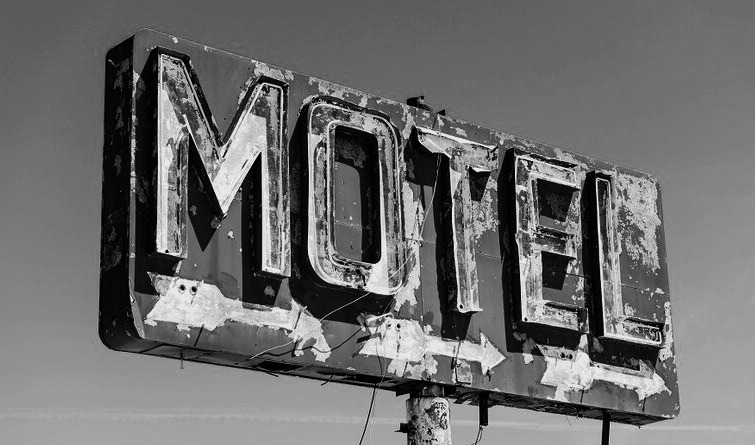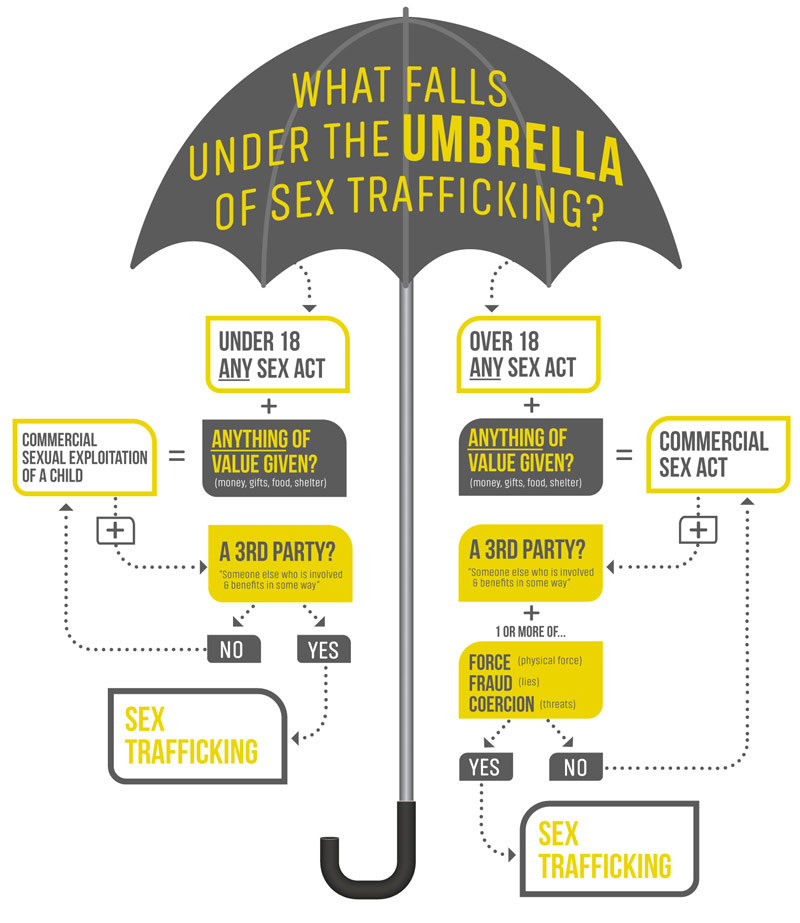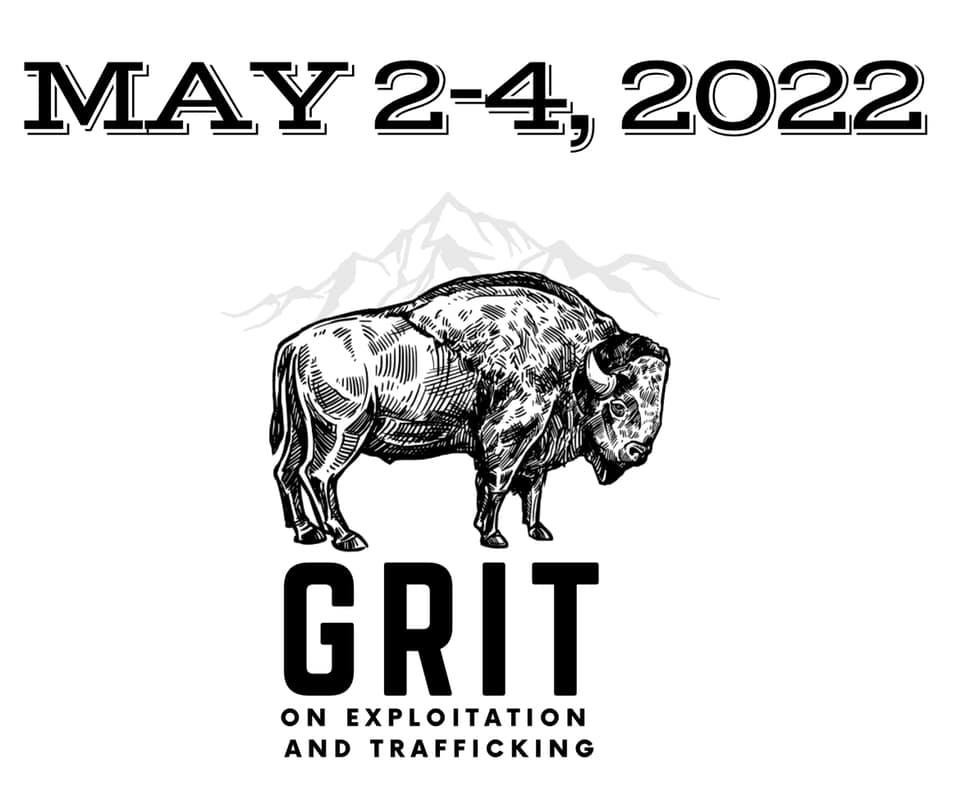Is Human Trafficking Actually What You Think It Is?


What comes to mind when you hear the phrase “human trafficking?” Perhaps it’s a cluster of terrified people from another country, held captive and huddled in a shipping container. Or someone kidnapped and whisked across borders to a life of abuse and clandestine servitude.
While these examples certainly fit the description of human trafficking, they do not represent the majority of cases — certainly not the cases that happen right here in Wyoming. Because cases of human trafficking are either sensationalized by the media or mislabeled as some other kind of crime, many people don’t understand the myriad kinds of exploitation that human trafficking encompasses.
Uprising, a nonprofit based in Sheridan, is dedicated to expanding the understanding of this complex and serious issue in the state.
Uprising is an awareness and prevention-based anti-trafficking organization. I think that that's really important especially in a place like Wyoming because there has been a lack of awareness about the issue in Wyoming. We are the last state to enact any human trafficking laws statewide,” explains Terri Markham, co-founder of Uprising.
“It does happen in all of the US states, including Wyoming. It might look a little bit different here and we work to explain that to people. Trafficking in general happens so much easier and it's not as complicated as people think,” continues Markham. “They tend to have those pictures in their head, like the white vans snatching kids off the corners and women locked in basements and being transported across state or international lines. And even though that is trafficking, it also looks a lot simpler than that. It looks like the kids sitting in your classroom and your neighbor — so just getting the chance to educate people about what trafficking really is is the biggest thing. Because when you know that it's something that can happen this easily in any community, then you're more likely to maybe notice red flags or take a second look when something seems off. And that's really what it's all about.”
Markham offers a few examples that many people may not immediately recognize as trafficking. “We did a training in Lander recently, and we were looking at a recent local news article about a fifty-something year old man who had started a relationship with a teenager and had been exchanging goods in exchange for sex.” Markham points out that many might not recognize this as trafficking, but this kind of exploitation actually is. Other examples include taking and sharing of illicit photographs in exchange for goods or money, or exchanging sexual acts for other items of value.

Increasing the number of professionals — like doctors, nurses, teachers, advocates, and law enforcement officers — who understand the true nature of trafficking and exploitation are much more likely to identify it and connect a victim with help.
It's shocking how many survivors I meet who don’t fit that image; you think these women are like locked away in a basement and kept away from life. But most trafficking survivors that I know, it’s like they're leading two lives because they're going about their regular life. They're still going to school or work or church. They're still out in the community, but they have this other thing that's also happening in their life that you don't see,” reflects Markham. “The chances of them coming into contact with victim services or law enforcement or healthcare is so high. We hear it all the time that these women and men are coming into contact with these people in our community, but no one's catching that they were being trafficked.”
Instilling the skills to notice red flags of trafficking and exploitation, in addition to teaching professionals how to ask the right questions, empowers them to identify and intervene on behalf of someone who is experiencing trafficking or exploitation. “I hear survivors tell me all the time: if someone had just asked me if I was being trafficked, or had asked me if I was having to perform sex acts in exchange for an item of value, they feel like they probably would have been honest and answering that. But they're not going to offer up that information on their own without being questioned,” Markham explains.
Uprising offers trainings to professionals across the state of Wyoming, as well as community outreach to educate and empower everyday citizens.
Now, in addition to this personalized training, Uprising is at the helm of a new regional conference on human trafficking and exploitation in the Rocky Mountains. The first-of-its-kind conference will feature expert presenters addressing this constellation of issues from a variety of angles, and will also include interactive, experiential training opportunities to encourage cooperation and collaboration among organizations and services. The GRIT (Greater Rockies Immersive Training) conference was a dream of Markham’s prior to connecting with the Hughes Charitable Foundation.
“When we asked Terri what her team needed to really take the impact of Uprising to the next level, she knew exactly. She told us that hosting a conference would be a powerful way to make Wyoming a leader in the fight against human trafficking and exploitation, and go a long way toward bringing an end to it in our state. We immediately recognized that this was an incredible opportunity to make a widespread difference,” says Molly Hughes, Executive Director of the Hughes Charitable Foundation.
“The fact that we're going to have a regional human trafficking conference that's coming out of Wyoming of all places. I mean, it's just phenomenal,” beams Markham. GRIT will take place May 2-4 in Sheridan, Wyoming. It’s open to professionals across the state as well as anyone who is interested in learning more. Visit the GRIT website to view the schedule, learn more about the expert presenters, and register to attend.
All month long, Uprising is showcasing a series via social media — Instagram and Facebook — that helps everyone discover easy ways to open up conversations around human trafficking and exploitation. “We are running a campaign all month long called #StartTheConversation. All throughout the month, we have multiple posts a week that are talking about how you can really start the conversation about trafficking in a really approachable way,” says Markham.
“We hope that people will take this opportunity to develop a better understanding of human trafficking and exploitation because it really does happen here. The great news is that the more people who are willing to learn and be ready to take action, the better chance we have of eliminating this problem,” says Molly. “And the sooner it’s eliminated, the safer all Wyomingites will be.
